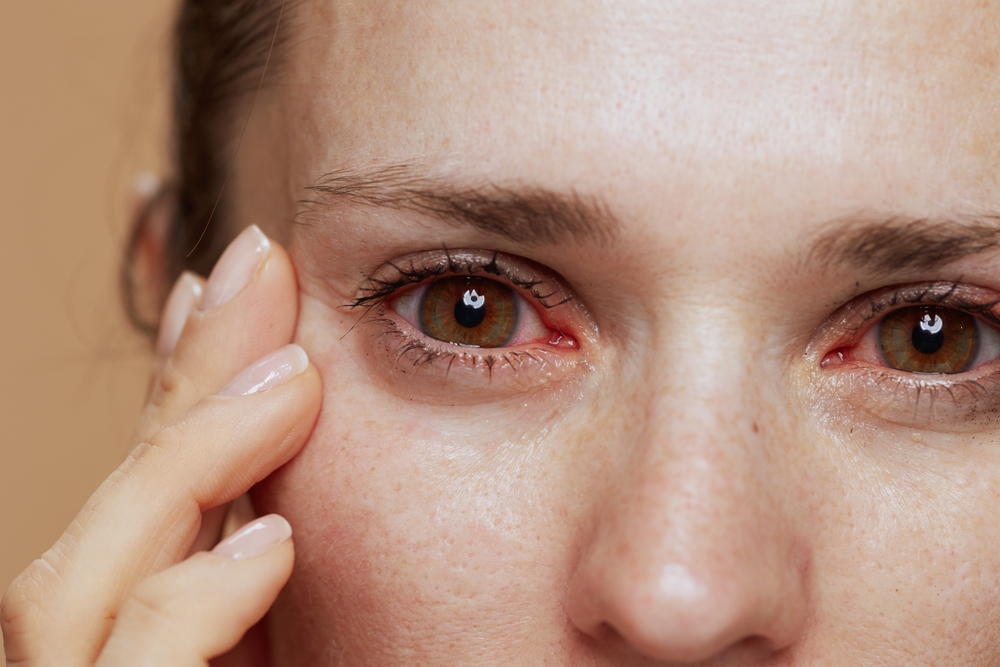
Tears are essential for protecting and nourishing the eyes. A stable, healthy tear film keeps the surface of the eyes smooth, clear, and comfortable. When tear production is disrupted, it can lead to a common yet often misunderstood condition known as Dry Eye Syndrome.
Why Are Healthy Tears Important?
Tears are made up of three key layers: oil, water, and mucus. Each layer plays an essential role in maintaining the health of your eyes. The oil layer prevents the evaporation of the tear film, while the water layer hydrates the eye and washes away debris. The mucus layer helps the tears spread evenly and adhere to the surface of the eye. Together, these layers work in harmony to keep vision clear, protect against infection, and ensure lasting comfort. When the tear film becomes unstable or deficient, the eyes can become dry, irritated, and more susceptible to damage.
What Is Dry Eye Syndrome?
Dry Eye Syndrome occurs when the eyes either do not produce enough tears or when the tears evaporate too quickly. This imbalance can lead to a range of uncomfortable symptoms such as stinging or burning sensations, redness, blurry vision, sensitivity to light, and the feeling of having something gritty in the eyes. If left untreated, Dry Eye Syndrome can cause chronic discomfort and may even result in damage to the surface of the eyes.
Common Causes of Dry Eye
Several factors can contribute to Dry Eye Syndrome, including:
Aging: Tear production naturally declines with age.
Screen time: Staring at computers, phones, and tablets can reduce blink rates.
Environmental conditions: Wind, dry air, and smoke can increase tear evaporation.
Eyelid Problems: Issues with the eyelids, such as blepharitis or meibomian gland dysfunction, can disrupt the production or quality of tears.
Medications: Certain medications like antihistamines, decongestants, and antidepressants can reduce tear production.
Medical conditions: Conditions like autoimmune diseases, diabetes, and thyroid disorders can affect tear glands.
Contact lens use: Wearing contact lenses can contribute to dry eye symptoms.
Understanding the underlying cause is essential for finding the right treatment.
How Dry Eye Syndrome Is Treated
Fortunately, Dry Eye Syndrome is highly manageable with the right care. Treatment options may include:
Artificial tears or lubricating eye drops
Prescription medications to boost tear production
Punctal plugs to help retain tears
Specialized in-office treatments targeting the root cause
Lifestyle changes such as taking breaks from screens and using humidifiers
At 4Sight iCare, we offer personalized dry eye evaluations to determine the best approach for your unique needs.
Schedule Your Dry Eye Evaluation Today
Healthy tears are vital for preserving both the comfort and clarity of your vision. If you are experiencing symptoms of Dry Eye Syndrome, do not ignore them. Early evaluation and treatment can make a significant difference in maintaining your eye health and overall well-being.
Contact 4Sight iCare to schedule a comprehensive dry eye evaluation and find the right treatment for your symptoms. Visit our office in Plainfield, Illinois, or call (815) 676-4474 to book an appointment today.




